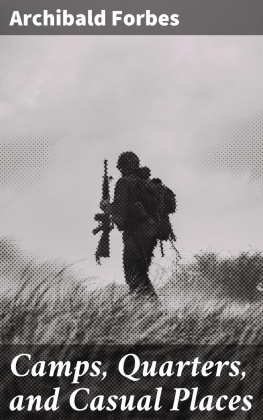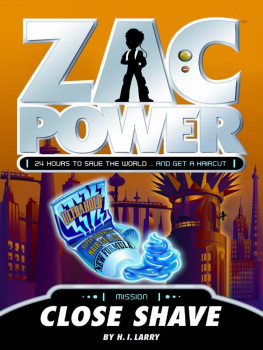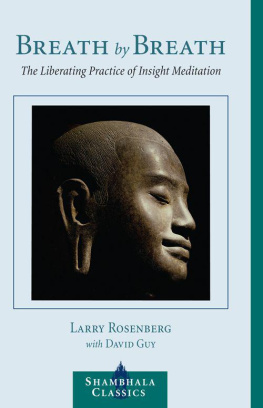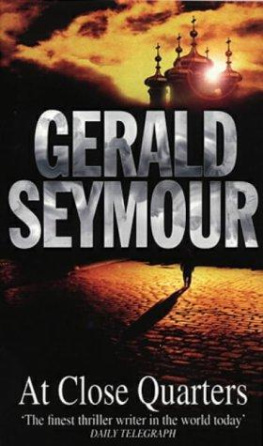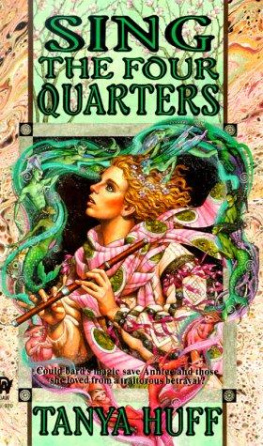Larry Heinemann - Close Quarters
Here you can read online Larry Heinemann - Close Quarters full text of the book (entire story) in english for free. Download pdf and epub, get meaning, cover and reviews about this ebook. year: 2005, publisher: Knopf Doubleday Publishing Group, genre: Detective and thriller. Description of the work, (preface) as well as reviews are available. Best literature library LitArk.com created for fans of good reading and offers a wide selection of genres:
Romance novel
Science fiction
Adventure
Detective
Science
History
Home and family
Prose
Art
Politics
Computer
Non-fiction
Religion
Business
Children
Humor
Choose a favorite category and find really read worthwhile books. Enjoy immersion in the world of imagination, feel the emotions of the characters or learn something new for yourself, make an fascinating discovery.

- Book:Close Quarters
- Author:
- Publisher:Knopf Doubleday Publishing Group
- Genre:
- Year:2005
- Rating:5 / 5
- Favourites:Add to favourites
- Your mark:
- 100
- 1
- 2
- 3
- 4
- 5
Close Quarters: summary, description and annotation
We offer to read an annotation, description, summary or preface (depends on what the author of the book "Close Quarters" wrote himself). If you haven't found the necessary information about the book — write in the comments, we will try to find it.
Close Quarters — read online for free the complete book (whole text) full work
Below is the text of the book, divided by pages. System saving the place of the last page read, allows you to conveniently read the book "Close Quarters" online for free, without having to search again every time where you left off. Put a bookmark, and you can go to the page where you finished reading at any time.
Font size:
Interval:
Bookmark:

Acclaim for Larry Heinemanns
CLOSE QUARTERS
This is the way it was the heat, the blood, the terror the taking of pleasure where you could nothing is romanticized, and, finally, nothing is exaggerated which only heightens the horror.
Chicago Daily News
The best book written by anyone who fought in Vietnam.
C.D.B. Bryan, author of Friendly Fire
Its descriptions of combat and the emotional maiming soldiers undergo in combat are among the best I have seen anywhere. His ability to capture the sights, sounds, and smells of Vietnam show him to be a writer of talent, and I think Close Quarters will rank with the best works in the literature of wars.
Philip Caputo, author of A Rumor of War
Like Hemingway in A Farewell to Arms, Heinemann convinces us of the authenticity of HIS war by limiting the narratives point of view to that of the individual in battle who understands neither the higher strategy nor the political causes that dictate his actions.
The Wilson Quarterly
Brilliant riveting graphic. Heinemann captures the essence!
The Philadelphia Inquirer
LARRY HEINEMANN
CLOSE QUARTERS
Larry Heinemann was born and raised in Chicago. He served a tour of duty with the 25th Division in Vietnam. In the past he has received fellowships from the National Endowment for the Arts, the Guggenheim Foundation, and the William Fulbright Scholarship Program. He is the author of three novels: Close Quarters, Pacos Story, and Cooler by the Lake, as well as a memoir, Black Virgin Mountain. His writing has received several honors, including the National Book Award and the Carl Sandburg Award. He currently lives in Chicago with his wife.
ALSO BY LARRY HEINEMANN
FICTION
Pacos Story
Cooler by the Lake
NONFICTION
Black Virgin Mountain: A Return to Vietnam
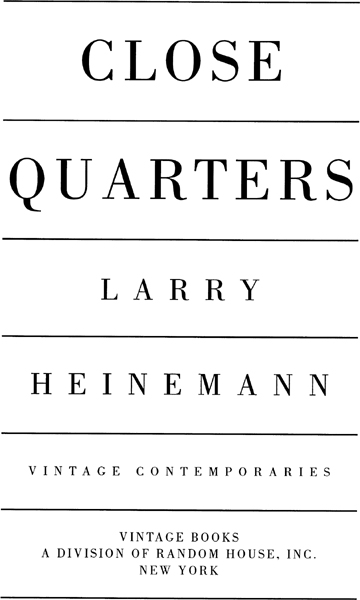
No story is told, no book is written, in a vacuum. There are many people to whom I owe acknowledgment, and hearty thanks and abundant affection, for sustained encouragement and advice and every sort of help, and first among these is Edie, my wife.
I also wish to express my thanks and affection to (then) First Sergeant Alva (said to have been a full-blood Navaho Indian), who called me into his Orderly Room office the day I left for overseas and told me to remember, this is not a white mans war, among other things. First Sergeant, this is to let you know that your advice has served me well.
May Gods luck be with you.
Larry Heinemann
Chicago
BUZZ, BUZZ!
Hamlet (II, II)
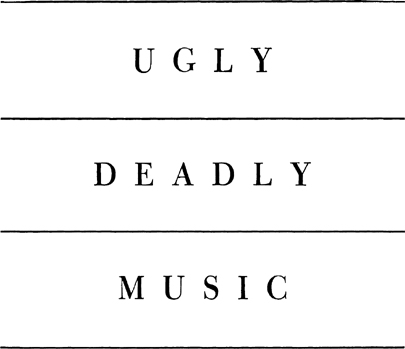
I stood stiffly with my feet well apart, parade-rest fashion, at the break in the barbed-wire fence between the officers country tents and the battalion motor pool. My feet and legs itched with sweat. My shirt clung to my back. My shaving cuts burned. I watched, astonished, as the battalion Reconnaissance Platoon, thirty-some men and ten boxy squat-looking armored personnel carrierstracks, we called themcranked in from two months in the field, trailing a rank stink and stirring a cloud of dust that left a tingle in the air. One man slowly dismounted from each track and led it up the sloped path from the perimeter road, ground-guiding it, walking with a stumbling hangdog gait. Each man wore a sleeveless flak jacket hung with grenades, and baggy jungle trousers, the ones with large thigh pockets and drawstrings at the cuffs. The tracks followed behind like stupid, obedient draft horses, creaking and clacking along, and scraping over rocks hidden in the dust. There were sharp squeaks and irritating scratching noises, slow slack grindings, and the throttled rap of straight-pipe mufflers, all at once. And the talk, what there was, came shouted and snappyeasy obscenities and shit laughs. It was an ugly deadly music, the jerky bitter echoes of machines out of sync. A shudder went through me, as if someone were scratching his nails on a blackboard.
The men walking and the men mounted passed not fifteen feet in front of me. A moult, a smudge of dirt, and a sweat and grit and grease stink covered everything and everyonethe smell of a junkyard in a driving rainstorm. Each man looked over, looked down at me with the blandest, blankest sort of glancealmost painful to watchneither welcome nor distance. This one or that one did signify with a slow nod of the head or an arch of the brows or a close-mouthed sigh, and I nodded or smiled back, but most glanced over dreamily and blinked a puff-eyed blink and glanced forward again.
The tracks, flat-decked affairs with sharply slanted fronts and armor-shielded machine guns (one fifty-caliber and two smaller M-60s), were painted o.d.olive drab, a dark tallow shade of greenwith large dun-colored numerals, faint and scratched but plain. The smooth straight sides and some of the curved gun shields bore thin bright gouges from Chicom claymore hits and deflected small arms. The confusion of scratches and scrapes was as wonderful and brutal as fingernails dragged across the nap of velvet. Some of the tracks had nicknames: Lucky Louie and Stone Pony and White Hunter and One Bad Cat and The Kiss-off and Scratch 
 Body count.
Body count.
That summer the number would become fifteen and later twenty-six, and later still we would lose count and give up the counting, saying among ourselves, Who fucken cares?
The last track, the seven-seven, pulled into the motor pool, towing the very last, the seven-six. The seven-seven left the seven-six near the mechanics quonset and pulled up and parked with the rest. A pathetic, odd moment of stillness settled over us as it finally shut down. Thick waves of engine heat rose through all the chicken-wire grillwork. The ground guides stood in front of the tracks, motionless and stoop-shouldered in ankle-deep ocher silt. The men still mounted, the drivers and gunners and TCstrack commandersgazed at their hands or wiped dusted faces with dusted arms or stared down the broad slope at the rubber-tree woodline across from the perimeter wire, squinting darkened, puffy eyes.
With the tracks facing me on line I saw that all the machine gunsten fifty-calibers and twenty M-60swere still loaded and pointing down. It was the frankest kind of gesture. Down where the terror would be, pointing always at the closest trees, the likeliest part of a hedgerow, the nearest rice-paddy dikes, which everyone called berms. The driver of the downed track, wearing a football-helmet-looking thing, a CVC, roused himself. He pulled himself out of his hatch and stood on the seat, sloughing off his dark glasses and bulky flak jacket and CVC, leaving them where they fell. He wore a pistol holster clipped to his trouser belt and two leather cartridge belts buckled round his waist, studded with rounds. A thick dust, almost crusted, covered his short curly hair, the razor rash on his face and neck, and the sparse hair of his arms. A glistening sweat smeared the sides of his chest and back where his flak jacket had clung to his body in folds, and his eyes shone a glassy pink against his gritty black face. The sweat soaked through in patches and dripped in runnels from his chin and fingertips and belly. He worked his jaw and cheeks, hawking up phlegm, then spit a gob of white foamy spit to leeward at the woodline down the way. It disappeared into the dust. He heaved his chest, catching his breath, all the while working his hands open and closed until he reached his fists to his eyes, leaning his head back.
Font size:
Interval:
Bookmark:
Similar books «Close Quarters»
Look at similar books to Close Quarters. We have selected literature similar in name and meaning in the hope of providing readers with more options to find new, interesting, not yet read works.
Discussion, reviews of the book Close Quarters and just readers' own opinions. Leave your comments, write what you think about the work, its meaning or the main characters. Specify what exactly you liked and what you didn't like, and why you think so.



